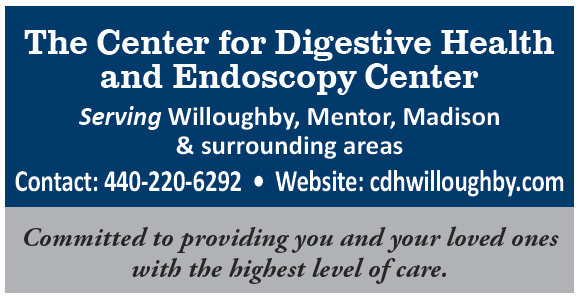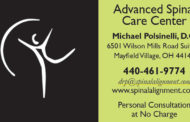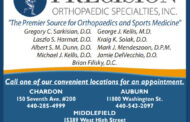Timely Colonoscopy Can Prevent Cancer … It’s a Choice
By Michael Kirsch, MD, Center for Digestive Health and Endoscopy Center
Many life events are beyond our control and understanding. Life can be unforgiving of the choices we make. However, there are times when exercising good judgment can mean the difference between life or death.
Consider some of the choices listed below.
- Texting while driving.
- Riding a motorcycle (without a helmet).
- Driving when you have had one too many.
- Rushing through a yellow light.
- Getting chest pain for the first time after shoveling snow, and decided it was just heartburn.
Are any of them familiar to you? Get the point? Every day, we confront forks in the road when we must make choices.
I see this issue in my gastroenterology practice. I’ve done about 30,000 colonoscopies in my career. Fortunately, the results of nearly all of them are normal or show benign findings. Telling a patient and their family that all is well after the procedure is a pleasure that hasn’t changed over the years.
But, not every colonoscopy result is innocent. When I discover one, I am aware that life for that person and his loved ones is about to change profoundly.
While colon cancer affects the patient and his family most deeply, it’s a heavy day for the gastroenterologist also. What makes the day even darker for us is when the patient had faced a fork in the road, but made the wrong choice. Consider the following examples which I have seen repeatedly in my practice.
- A patient turns 50 but chooses not to have a colonoscopy.
- A patient has rectal bleeding and ignores it.
- A patient was told of hemorrhoids years ago. Rectal bleeding develops, and he assumes that his hemorrhoids are active again. He does not consult his physician.
- A patient’s bowel changes, but he decides that this must be a side-effect of new medication.
- A patient has a large colon polyp removed by his gastroenterologist. He is advised to return in a year for another colonoscopy, but he does not do so. He is too busy.
Colon cancer, unlike so many other cancers, is a preventable disease.
The majority of colon cancers that I have discovered were in people who did not choose wisely when they should have. They ignored. They denied. They delayed.
Time after time, I have seen intelligent people who have had rectal bleeding for months before they decided to see me.
Every expert will attest that the earlier colon cancer is diagnosed, the better the prognosis will be. But more importantly, timely colonoscopy can prevent the disease altogether.
























